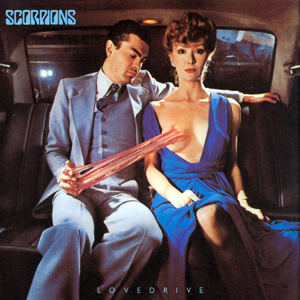Scorpions and Whitesnake are joining forces for a co-headline tour of Australia and New Zealand this February.
Whitesnake formed in the north of England in the late-1970s. Led by ex-Deep Purple singer David Coverdale, they achieved instant success with a hard rock version of Bobby “Blue” Bland’s ‘Ain’t No Love In the Heart of the City’.
The British heavy metallers consistently cracked the top ten throughout the 1980s with albums such as Come an’ Get It and Saints & Sinners. Whitesnake’s greatest success came courtesy of their 1987 self-titled album, which yielded the classic rock staples ‘Here I Go Again’ and ‘Is This Love’.
Scorpions emerged out of West Germany in the early-1970s. Following a few false starts and personnel switcheroos, the band found success outside of their homeland after a adopting a hard rock sound in the second half of the decade.

Scorpions frequently courted controversy with records like Virgin Killer and Lovedrive, but that didn’t prevent them from breaking into the US mainstream in the early 1980s. Song like ‘Rock You Like a Hurricane’ and ‘Wind Of Change’ remain constants on rock radio stations around the world.
Ahead of the metal giants’ joint tour, we got hard rock enthusiast James Young – co-owner of Melbourne’s iconic Cherry Bar – to speak to Scorpions frontman Klaus Meine and Whitesnake’s David Coverdale.
KLAUS MEINE – SCORPIONS
James Young: It’s been nearly 50 years since your debut album, Lonesome Crow, which was the soundtrack to a German anti-drug film. At the time would you have believed Scorpions would dominate over so many decades?
Love Metal?
Get the latest Metal news, features, updates and giveaways straight to your inbox Learn more
Klaus Meine: We have always believed in our talent, but 50 years plus? Come on… no way [laughs].
JY: When you are writing lyrics, do you first get an idea in German and then find an English version that works, or do you start in English? Which comes first, the language or the sentiment?
KM: Inspiration comes first. The words come to me in English right from the start. It only works that way. A great riff or an idea for a hook and you take it from there.
JY: “Rock you like a hurricane.” What a phrase! What a song! Which of you came up with that term?
KM: I wrote the lyrics together with our drummer Herman Rarebell. I came up with the chorus – “rock you like a hurricane” – he did the verses – “The bitch is hungry.” It became one of our all time classics and it still rocks the world like a hurricane!
Watch: ‘Rock You Like a Hurricane’ by Scorpions

JY: Scorpions have always maintained an animalistic sound and a very sexy look – and even sexier, yet understated, stylised, sometimes controversial artwork.
I believe Virgin Killer had to have two versions, along with Lovedrive, which had won Playboy magazine’s Best album sleeve of 1979. Who chooses the title track, and does the concept for the artwork come from that? Do you have a favourite?
KM: Love Drive is one of my all time favourite artworks (Hipgnosis). The cover of Virgin Killer was the idea of our label and was inspired by the lyrics of the title track. Back in the ‘70s [it was] very controversial. In 2020? A total no go – not proud of that one.

JY: ‘Wind of Change’ is arguably your most successful hit. I still often hear it played on commercial radio here. Was it a surprise hit for you? Or did you have a feeling it would eventually take off?
KM: ‘Wind Of Change’ was inspired by our shows at the Moscow Music Peace Festival in August 1989. When we played at Lenin Stadium we saw the world changing in front of our eyes. The Red Army soldiers who were part of the security for this Russian Woodstock threw their caps and jackets in the air and joined the fans just going crazy.
When I wrote that song I knew it was very strong, but I never thought it would become the soundtrack of this historical moment in time; the end of the cold war and the coming down of the Berlin Wall.
DAVID COVERDALE – WHITESNAKE
James Young: Do you have any pre-show rituals? And have they changed through the differing eras of Whitesnake?
David Coverdale: Of course. I talked with Pavarotti about pre-show superstitions. He had significantly more than me. He wouldn’t share everything, of course; some “rituals” are very personal. I meditate everyday, as most people seem to know through my social media, but show days I always meditate twice. That’s all you’re getting!

JY: ‘Here I Go Again’ and ‘Crying in the Rain’ from Saints & Sinners [1982] were both re-recorded and reborn for the 1987 self-titled album. The ‘87 version was voted number 17 in the VH1’s 100 greatest songs of the 80s.
Are there any other classic Whitesnake songs you wanted to redo or that you think could’ve had more impact if released in another time?
DC: Most of the catalogue! But we seem to be able to come up with new classics, so what would be the point? Another important reason is that some of those old songs are like sacred relics to a lot of fans. I wouldn’t want to piss them off at this point in my career.
Watch: ‘Here I Go Again ’87’ by Whitesnake

JY: Everything about Whitesnake matches. The name, the music, the album titles and artwork, and even your mic stand moves. Has it been as fun as one would imagine maintaining the innuendo all these years? You’re always top of your game!
DC: Thank you very much! Yes, it’s been an absolute blast, to be honest. Lots of challenges as the music business is not without its issues, but thankfully my passion for what I love to do outweighed any bullshit that was thrown at me.
Scorpions and Whitesnake Australian Tour 2020
Wednesday, February 19th, 2020
Rod Laver Arena, Melbourne, VIC
Saturday, February 22nd, 2020
Qudos Bank Arena, Sydney, NSW
Monday, February 24th, 2020
Brisbane Entertainment Centre, Brisbane, QLD
Tickets on sale now via Live Nation




































